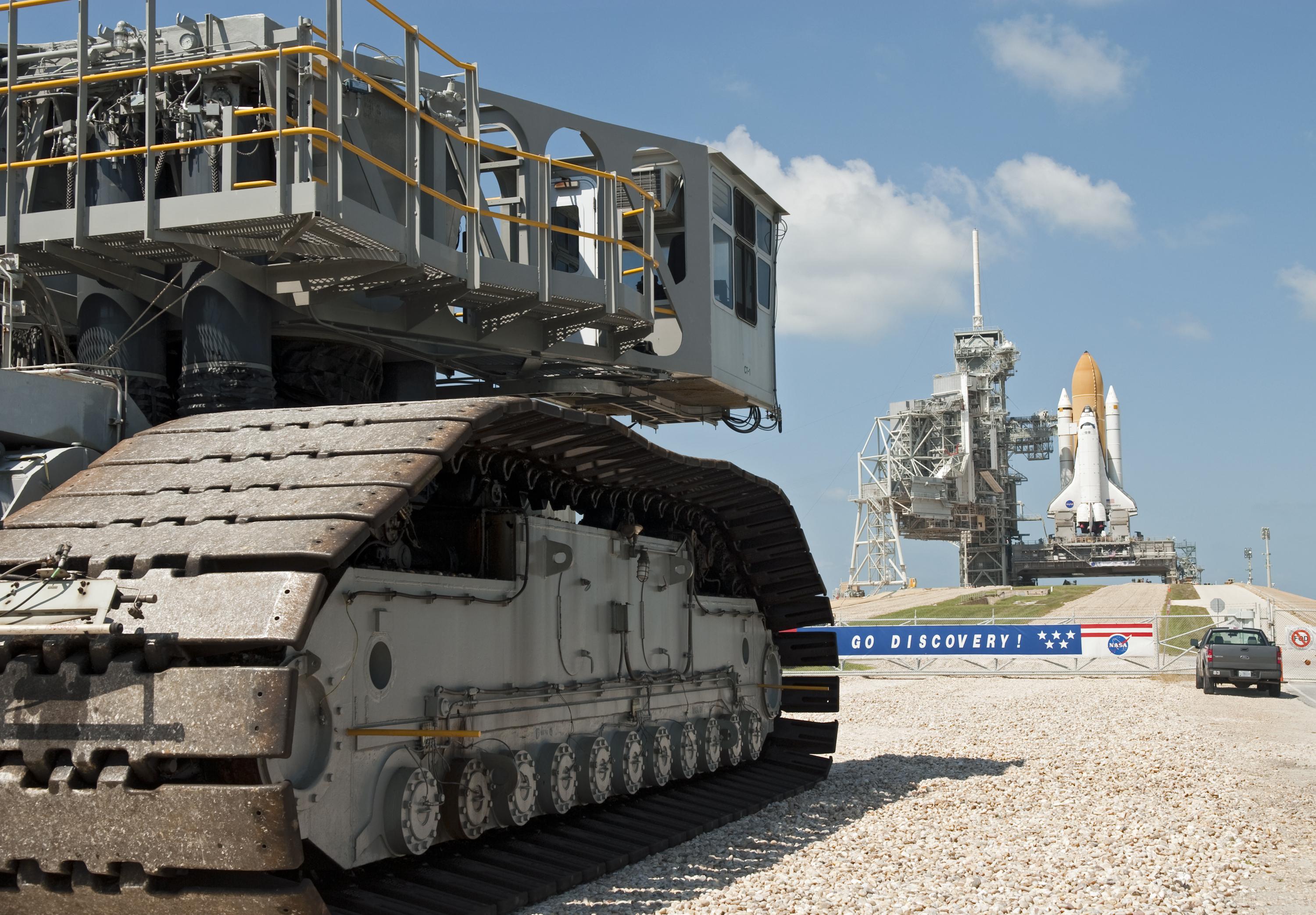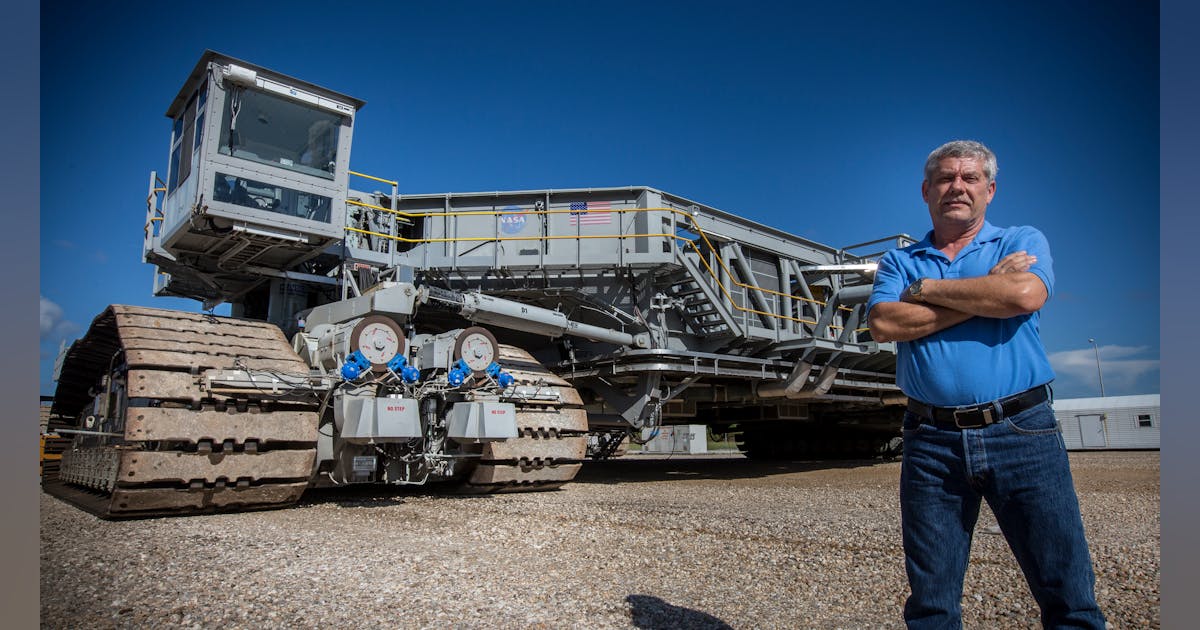NASA’s crawler-transporter is a massive vehicle that is used to transport rockets and spacecraft to their launch sites at the Kennedy Space Center in Florida. The crawler-transporter is one of the largest self-powered land vehicles in the world, and it plays a critical role in NASA’s space launch operations.
The crawler-transporter was first built in the 1960s for the Apollo program, and it has been in use ever since. The vehicle consists of two massive tracked crawlers, each of which weighs over 2,700 tons. The crawlers are connected by a massive steel platform, which is used to carry the launch vehicle.
The crawler-transporter is powered by two diesel-electric locomotive engines, which generate a total of 8,680 horsepower. The vehicle has a top speed of just 2 miles per hour when carrying a launch vehicle, and it can carry payloads of up to 18 million pounds.
To transport a launch vehicle, the crawler-transporter is first positioned beneath the launch platform. The launch vehicle is then secured to the platform, and the entire assembly is raised to a vertical position. The crawler-transporter then slowly moves the launch vehicle and platform to the launch site, where the launch vehicle is finally lifted into its vertical position for launch.

The crawler-transporter is also equipped with a range of advanced technologies to ensure its safe and efficient operation. This includes a complex system of sensors and monitoring equipment, as well as sophisticated computer systems that are used to control the vehicle’s movements.

Overall, the crawler-transporter is a critical component of NASA’s space launch operations. Its massive size and power make it capable of transporting some of the largest and most complex spacecraft and launch vehicles in the world. While the vehicle is now over 50 years old, it remains an essential part of NASA’s infrastructure, and it is expected to continue to play a critical role in the agency’s space launch operations for many years to come.

Video:





